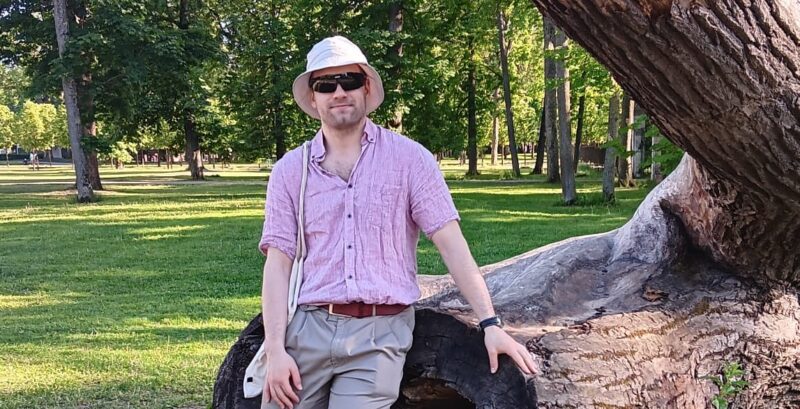
Please tell me a bit about yourself and your research
I am Antti Tiilikainen from University of Eastern Finland, Joensuu campus. I have master’s degree from Human Geography and bachelor’s degree from Art of War from Finnish National Defence University. Before coming to UEF I served in the Finnish Defence Forces for seven years, and since retiring from active duty I have been a reservist trainer at the National Defence Training Association. Thus, my PhD is promptly about voluntary national defence in the Baltic Sea region. I research how the state and voluntary national defence are intertwined in Finland, Estonia, Sweden, and Åland, and what motivates contemporary volunteers to volunteer. My research can also shed light on to how these four different geopolitical regions affect the citizens residing in them, as evidenced by variations in motives to volunteer.
Why did you apply for the exchange week at Tallinn University?
Already when making the research plan for my PhD I knew I would have to gather data from Estonia. So, when this opportunity to apply for exchange week over at Tallinn University came up, I knew immediately that I would have to apply because it would directly help with my research. The timing was a bit off though, because I had originally planned to do research in Estonia and Sweden in 2025, but this trip served as a good preparatory exercise for next year.
What did you do during your exchange?
The most important thing I gained from the exchange were the networks I made during the visit and the much-enhanced knowledge about voluntary national defence in Estonia, and how it differs from Finland on the practical level. This knowledge will help me better formulate interview questions that reflect the practise of Estonian volunteers and how volunteering is structured in Estonia. Now I see that my mental concept of voluntary national defence in Estonia was not very accurate, and the time in Estonia helped sharpen that concept. I believe this will also carry over to the Swedish case. Another thing that I did in Estonia was to get more acquainted with the literature and hone the theories section of my first article.
What kind of support did you get from Tallinn University and the Border Lab project?
The most important form of support I received from Tallinn University was the contacts I was able to make through them, that I otherwise would not have been able to make. This support will probably make gathering the data and writing my second article that covers all four regions much easier and faster. I also received great benefit from the comments I received on my seminar presentation, for which I had to open my so far done interviews and do some preliminary analysis on them. This analysis spawned new ideas about my research and has already helped with my interviews in Finland. The comments also provided new theoretical avenues to investigate and expand the theory section of my first article.
How did the exchange benefit your studies?
The exchange benefitted my studies immensely. I have gained valuable contacts and new knowledge about Estonia, new theoretical avenues to approach my topic, I got to meet an old friend again and made new ones along the exchange. Overall, the experience was very positive, and I am glad that I took the chance and applied.